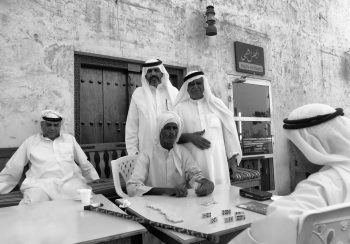The formation process of place nouns in Arabic Posted by Hanan Ben Nafa on Aug 23, 2017 in Arabic Language, Grammar

In a previous post, we learnt about one feature that makes Arabic one of the few, most efficient languages in the world, and that feature is derivation: its productivity in terms of word formation.
In today’s post, we’re looking at a specific aspect of this derivation process, and that aspect is the formation of place names from the basic morpheme or the rootالجِذْرْ Al-jethr, which is usually the three consonants that make up most words in Arabic. These three consonants together with their vocalic melody (vowels) represent what is called a template. It’s through making changes to these vocalic melodies that new words are formed.
Today, we’re going to learn how to form a place nouns with the vocalic melody of either 1- (a – a) or 2- (a – i)
How does this formation process work?
The majority of place nouns in Arabic starts with ‘ma’ مَـ so an obvious thing to do is to add ‘ma’ to the beginning of the past tense of a verb (it’s usually the root of any Arabic word), but you need to make changes to the template first>
For example, the template of the past tense form of the verb ‘prostrates’ is:
Sajada سَجَدَ
***Now, to generate the place noun, you need to:
1- remove the first and the final vowels from the verb template: sajada سَجَدَ > sjad سْجَدْ
2- Now add ma مَــ to the beginning: sjad> masjad مَسْجَدْ
3- You need to either change the vowel in ‘sjad’ into (i) or keep it as it is. In this case, it needs to be changed to (i), so masjad> masjid مَسْجِدْ
So here a mosque is a place where people pray and prostrate, which is a part of any prayer in Islam.
How to know whether a place noun is (a- a) or (a – i)?
You can check by turning the verb in the past tense to the present tense. If the second vowel (sa.ja.da) is (i) as in (yas.jid) يَسْجِدْ , then the template of that place noun is (a- i) >> Masjid.
Another example of a place noun with the vocalic melody of (a-a) is:
مَجْلِسْ
Maj.lis
(Assembly)
Here, the root (past tense) of majlis is jalasa, so the place noun would be:
jalasa> majlis
and not ‘majlas’ because the present tense is ‘yajlis’ يَجْلِسْ with (i).
However, if the second vowel in the present tense is ‘a’ or ‘u’, then the rhythm of the place noun would be (a – a).
For example, the template of the past tense form of the verb ‘sowed’ is:
Zaraʕa زَرَعَ
To enerate the place noun>>
1- zaraʕa زَرَعَ > zraʕ زْرَعَ
2- zraʕ> mazraʕ مَزْرَعْ
3- In this case, keep the vowel as it is because it is also ‘a’: ‘yazraʕ’ يَزْرَعْ in the present tense. So the place noun is mazraʕ مَزْرعْ
BUT! a farm is a feminine name in Arabic, so you just need to add the feminine marker ‘a’ ـه to the end of the noun to become> مَزْرَعَه mazraʕa
Another (simple) example is:
laʕiba لـَعِـبَ
(played)
> مَـلْـعَـبْ Malʕab
(Playground) – masculine noun.
More Examples:
مَنْزِلْ –
Man.zil
(House)
مَصْنَعْ –
Mas.na
(Factory)
مَدْخَلْ –
Madkhal
(Entrance)
مَدْرَسَه –
Madrasah
(School)

Build vocabulary, practice pronunciation, and more with Transparent Language Online. Available anytime, anywhere, on any device.




Comments:
Aboo Jaufurally:
Very useful explanation about forming noun.
Scheich Josef:
مرحبا يا حنان
The formation of a place name اِسْم مَكَانٍ from a root جِزْر is indeed an interesting topic, but not always quite as simple as decribed in your article. For example, in standard Arabic the present tense of the verbs سَجَدَ and غَرَبَ is يَسْجُدُ resp. يَغْرُبُ . Both have u as present vowel, but their place names مَسْجِد resp. مَغْرَب have the vocalic melody a – i, and not a – a as your rule claims.
مع السلامة
يوسف
https://josef.jimdo.com/